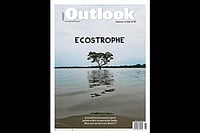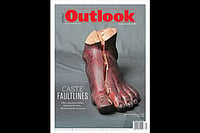Born in Rio de Janeiro, Brazil, Paulo Coelho is the author of 30 international bestsellers, including The Alchemist, The Pilgrimage, Veronika Decides to Die, Aleph, Eleven Minutes, The Fifth Mountain, The Valkyries, and Manual of the Warrior of Light, among others. He is well-known for the use of symbolism in describing the often spiritually motivated journeys his characters undertake. He dropped out of law school in 1970 and travelled extensively South America, Mexico, Europe, and North Africa. After returning home, he began to write pop and rock music lyrics with popular Brazilian singer songwriter Raul Seixas. He continues to explore questions of faith and spirituality in his fiction and non-fiction.
Coelho’s latest book Maktub (translated from the Portuguese by Margaret Jull Costa; HarperCollins, 2024) is a companion to The Alchemist. Compiled from Coelho’s column of the same name, Maktub aims to take readers on a journey of introspection, self-reflection, and inner transformation.
Excerpts from Maktub:
The master says:
Close your eyes. No, you don’t even need to close your
eyes. Simply imagine this scene: a flock of birds in full flight.
Right, tell me how many birds you can see. Five? Eleven?
Seventeen?
Whatever your answer—and
it’s hard for anyone to give
a precise number—one
thing is clear from this small experiment.
You were perfectly capable of imagining a flock of birds,
but the number of birds was not in your control. And yet the
scene was so clear and defined and exact. The answer to the
question lies elsewhere.
Who decided how many birds would appear in that scene?
The master says:
Observe how certain words were constructed to reveal
their true meaning.
Take the word “preoccupation” and divide it in two: “pre”
and “occupation.” It means occupying your mind or worrying
about something before it actually happens.
Who, in the entire Universe, can possibly worry about
something that hasn’t even happened?
Discard all such preoccupations. Remain focused on your
destiny and on your path. Learn everything you need to know
in order to wield the sword of light that has been given to you.
Observe the fighting techniques of friends, masters, and
enemies.
Train hard, but do not make that worst of all mistakes:
believing that you know what your adversary’s next move is
going to be.
*****
A science fiction story describes a society in which almost
everyone is born ready to perform some task, be it as a technician,
an engineer, or a mechanic. A few are born with no
special skill, and they are sent to an insane asylum, since the
insane are incapable of contributing to society.
One of the inmates rebels. The asylum has a library, and he
tries to learn everything he can about science and art.
When he thinks he has learned enough, he decides to escape
but is captured and taken to a research facility outside
the city.
“Welcome,” says one of the people working there. “It is
precisely those who are obliged to find their own path whom
we admire most. From now on, you can do whatever you want
to do because it is thanks to people like you that the world can
progress.”
The master says:
Write. Whether it’s a letter or a diary or a few jottings as
you talk on the phone, just write.
Writing brings us closer to God and to our fellow humans.
If you want to have a better understanding of your role in
the world, write. Try to put your whole soul into writing, even
if no one else will ever read it or, worse, even if someone does
end up reading something you didn’t want them to read. The
mere fact of writing helps us to organize our thoughts and to
see the world around us more clearly. A piece of paper and
a pen can perform miracles—assuage
sorrows, make dreams
reality, take away and restore lost hopes.
The word is power.


























